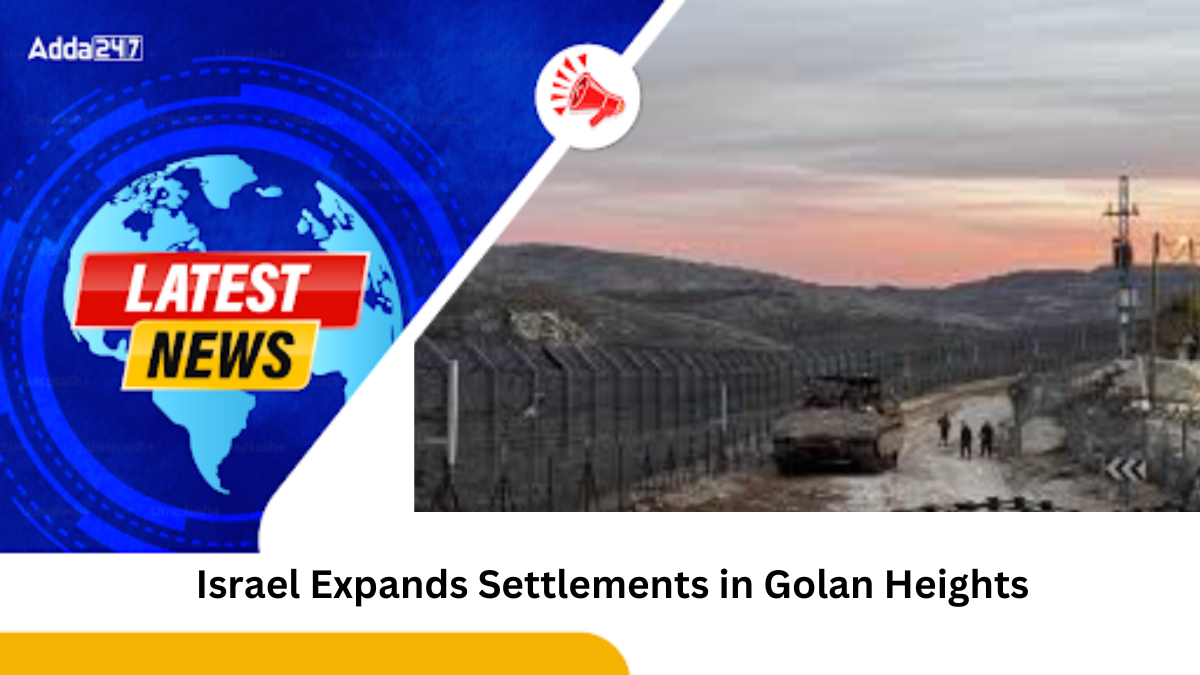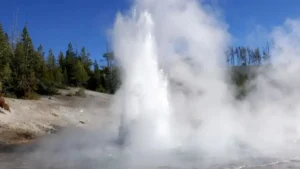Israel recently approved a settlement expansion plan in the Golan Heights, allocating over $11.13 million to boost population and infrastructure in the region. This decision comes amidst rising regional tensions following political changes in Syria, particularly the fall of the Assad regime. Israel aims to double the population in this strategically significant territory.
Strategic Importance of Golan Heights
The Golan Heights, captured by Israel during the 1967 Six-Day War and annexed in 1981, remains unrecognized as Israeli territory by most of the international community. The plateau holds strategic value for defense and water resources. Currently, the region houses about 50,000 residents, including 20,000 Israeli settlers and an equal number of local Druze Arabs and Alawites.
Settlement Expansion Details
Proposed by Prime Minister Benjamin Netanyahu, the plan includes developing education facilities, renewable energy projects, and a student village. The Golan Regional Council will also receive support to manage an anticipated population growth. Netanyahu justified the move as critical for national security, citing the unstable post-Assad landscape in Syria.
Regional Criticism and Legal Context
The expansion has drawn strong criticism from Arab nations. The UAE emphasized Syria’s territorial rights, Qatar condemned the move as an attack on Syrian sovereignty, and Saudi Arabia also voiced disapproval. Under international law, the Golan Heights is considered occupied territory, with only the U.S. recognizing Israel’s sovereignty. Former Israeli PM Ehud Olmert questioned the expansion’s necessity, highlighting the risk of escalating tensions.
Rising Tensions with Syria
Israel’s actions follow heightened military activity in Syria, including over 450 airstrikes since December 8, targeting military assets. Syria’s new leader, Ahmed al-Sharaa, criticized these strikes as crossing “red lines” but indicated Syria’s war-weary state prevents further confrontation. Meanwhile, Netanyahu reiterated that Israel has “no interest in a conflict with Syria” but will act as necessary to secure its borders.
Summary of the news
| Key Point | Details |
|---|---|
| Why in News | Israel approved a $11.13 million settlement expansion plan in the Golan Heights to double its population, citing security needs after the fall of the Assad regime in Syria. |
| Golan Heights Capture | Captured by Israel in the 1967 Six-Day War. |
| Annexation Year | Annexed by Israel in 1981; unrecognized by most of the international community. |
| Legal Status | Classified as “occupied territory” under international law. |
| Population | Home to approximately 50,000 residents: 20,000 Israeli settlers and 20,000 local Druze Arabs. |
| Strategic Importance | A vital plateau for defense and water resources. |
| Criticism | Strong opposition from UAE, Qatar, and Saudi Arabia, citing violations of international law. |
| Global Recognition | Only the United States recognizes Israel’s sovereignty over the Golan Heights. |
| Prime Minister of Israel | Benjamin Netanyahu. |
| Key Plan Details | Includes education facilities, renewable energy projects, a student village, and infrastructure upgrades. |
| Neighboring Country | Syria, currently unstable following the fall of the Assad regime. |



 Yellowstone’s Rare Echinus Geyser Erupts...
Yellowstone’s Rare Echinus Geyser Erupts...
 Women Hold Only 64% of Men’s Legal Right...
Women Hold Only 64% of Men’s Legal Right...
 Scotland Legalises Water Cremation: Firs...
Scotland Legalises Water Cremation: Firs...








